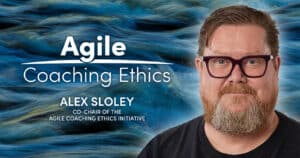November 3, 2023, marked a big day: the first appearance of the annual State of Sustainability in Agile event (SoSA 2023).
The Agile Sustainability Initiative set up this event to dive into all aspects of sustainability – social (focusing, e.g., on diversity, inclusion, or accessibility), environmental (concentrating, i.e., on the carbon footprint of the systems we’re creating), and economic (ensuring to improve the life of everyone everywhere).
With more than 180 sign-ups, the interest was quite high. It seems the Agile community understands its responsibility for the planet and is looking for ideas on what to do about it.
Agile and sustainability – A close connection
The first poll we ran during the event, where participants were asked to choose one word to represent the connection between Agile and sustainability, gave us the following result:
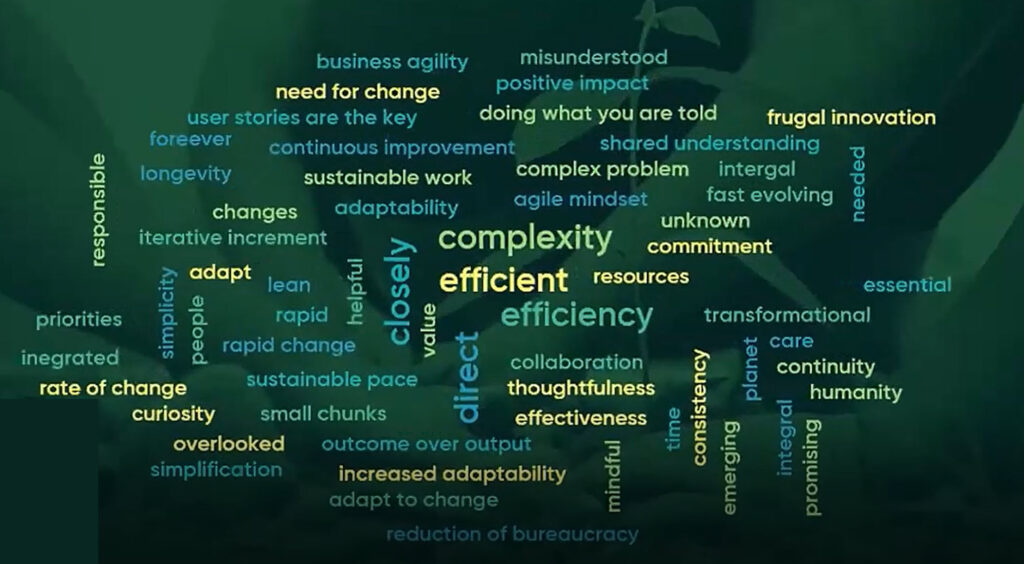
The very first response showed Agile and Sustainability being closely connected. With more answers appearing, the reasons for that closeness became more apparent, especially with adaptability, complexity, and efficiency standing out. This doesn’t come as a surprise, as our planetary challenges are indeed quite complex. On the other hand, Agile is particularly set up to deal with complexity by being adaptive.
Assessing Agile sustainability
We also conducted a quick survey to gather information about what the participants do right now in terms of sustainability, what they are aware of, and what they do on a daily basis:
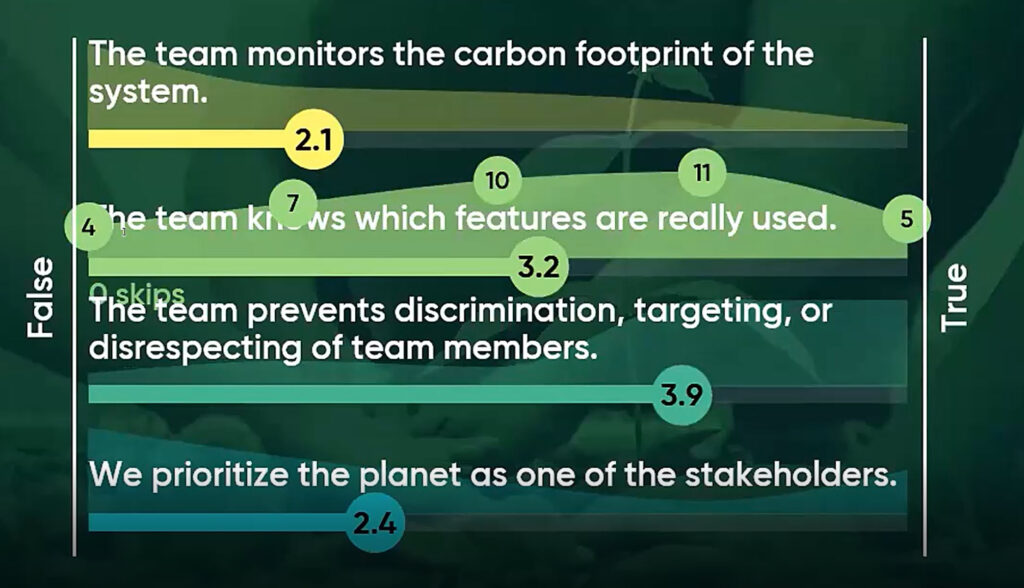
It has been increasingly noticed, as noted by Jorgen Hesselberg and Matt Haubrich in their analysis of an Agile Sustainability Assessment, that social sustainability is a top priority. This is exemplified by the principle “The team prevents discrimination, targeting, or disrespect among team members,” which received the highest rating.
The most probable explanation is that the social aspect, encompassing diversity, inclusion, and also security, safety, and privacy, has become more prominent over the past decade. In contrast, environmental sustainability, as indicated by monitoring the system’s carbon footprint, and holistic sustainability, which considers the planet as a stakeholder, have not been our primary concerns. This is evidenced by their lower evaluation scores of 2.1 and 2.4, indicating they are perceived as more false than true.
Economic sustainability, as defined by the team’s awareness of which features are actively used, ranked midway in this survey. However, it’s likely that we still need to address feature creep and muster the courage to remove unused features.
This assessment showed that despite the interest, there is still a lot of work to do. The presenters at the event (thanks to Yifeng Hou, Jorgen Hesselberg, Matt Haubrich, Arev Hakobyan, Remke Verdegem, Maryse Meinen, and Ines Garcia) shared their experiences and insights about what is done already and what each one of us could do to make a difference.
The grand finale was Ines Garcia’s presentation and, at the same time, the launch of the Agile Sustainability Manifesto.
Lessons learned and next steps
These presentations provided a fair number of learning nuggets for everyone, as shown by the results of the survey asking the question, “What’s the most surprising or important concept you learned today?”
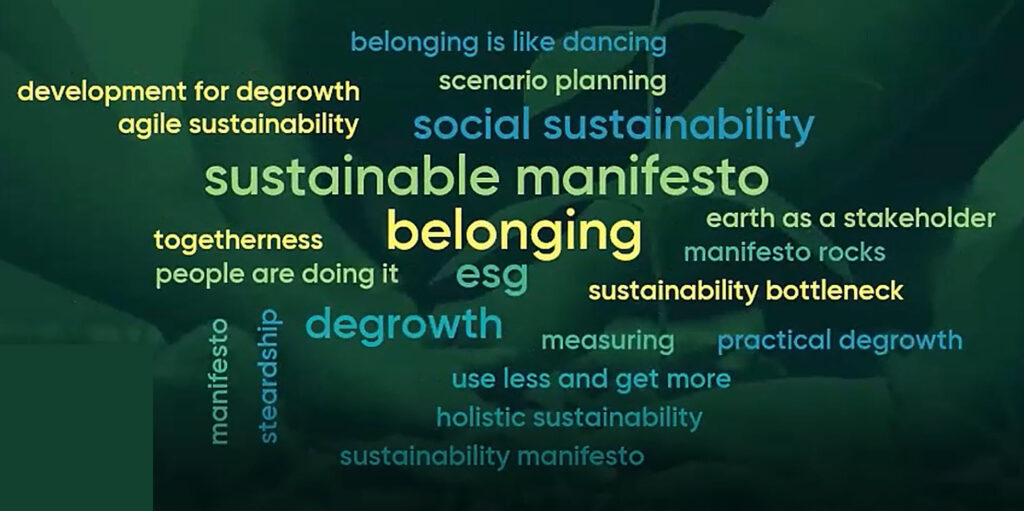
Each presentation left a mark, with the Sustainability Manifesto, degrowth, and belonging (a key asset of social sustainability) being the three that stood out. The participants went even so far and reported on their next actionable step in the final survey:
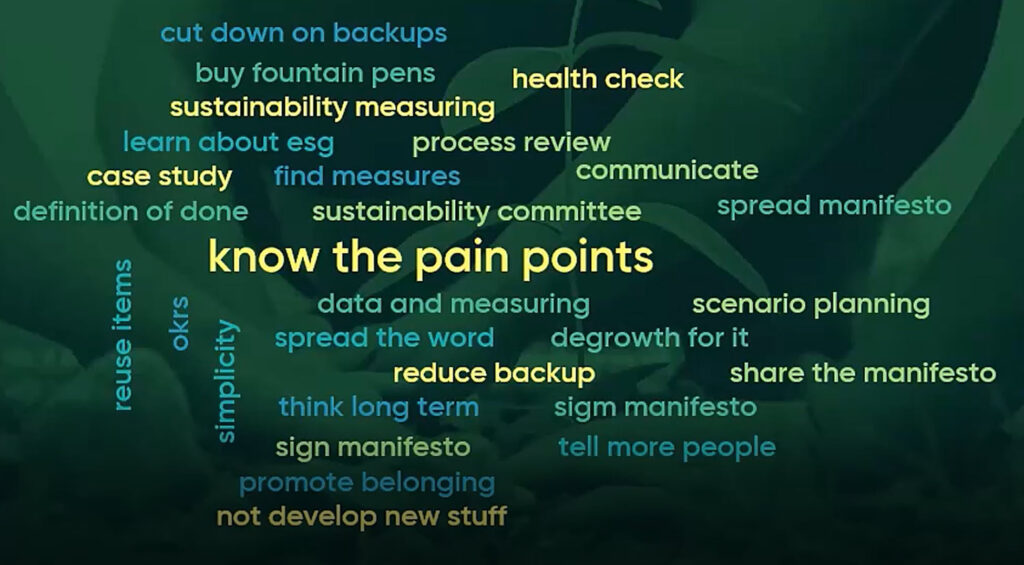
It seemed that increasing awareness, knowing the pain points when increasing sustainability in the organization (a topic Yifeng Hou presented), and signing and spreading the Agile Sustainability Manifesto were among the actions mentioned most often.
Have you signed the Agile Sustainability Manifesto yet? Maybe it is time for you to take the pledge now!







